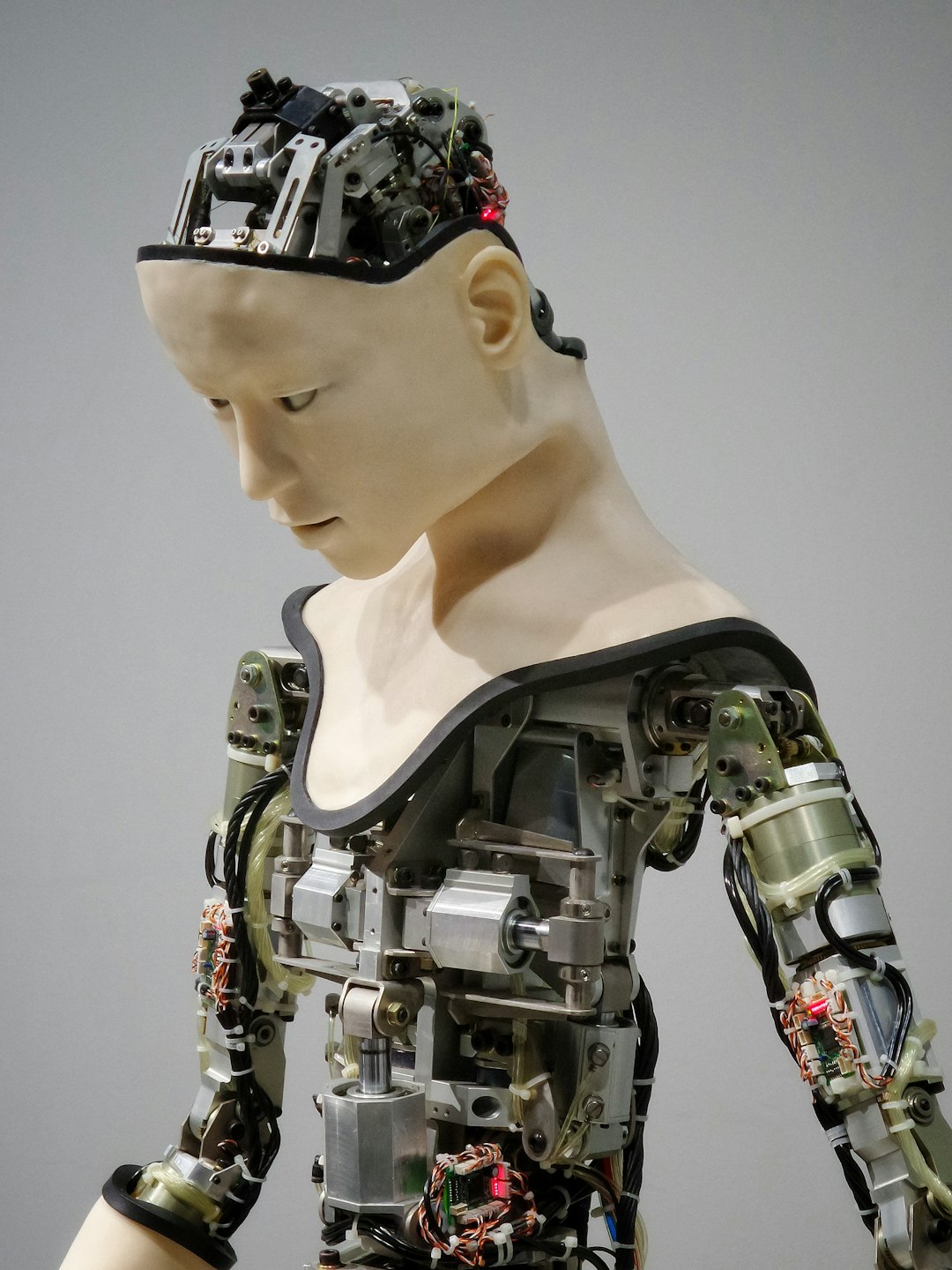Unlock encrypted content
Please enter your SSCE key to initiate on-the-fly decryption.
Decryption key: (Click cancel if you don't have the key)
Copied link to clipboard.
This feature is unavailable for free accounts. Upgrade now and enjoy all Premium benefits.
Go Premium!
This feature is unavailable for free accounts. Upgrade now and enjoy all Premium benefits.
Go Premium!
Please open this page in browser ( Google Chrome or Safari ) to use this feature.
Open In Browser
Genetic Modification: Advancing Science and Technology for a Better Future.
Random related video for this blog.
Copied share link to clipboard.
Genetic modification, also known as genetic engineering, is a revolutionary scientific technique that involves altering the DNA of living organisms. Through this process, scientists can manipulate the genetic material of plants, animals, and even humans, to enhance desirable traits or eliminate undesirable ones. This technology has the potential to revolutionize fields such as agriculture, medicine, and environmental conservation. In this article, we will explore the benefits and ethical considerations of genetic modification and its implications for the future.
Enhancing Crop Yield and Nutritional Value
One of the most significant applications of genetic modification is in agriculture. By introducing specific genes into crops, scientists can enhance their resistance to pests, diseases, and environmental stressors. This leads to increased crop yield, ensuring food security for a growing global population. Additionally, genetic modification can improve the nutritional value of crops by enriching them with essential vitamins and minerals. For example, genetically modified golden rice is fortified with beta-carotene, addressing vitamin A deficiency in developing countries. Genetic modification also offers the potential to reduce the environmental impact of agriculture. By engineering crops to be more resistant to herbicides, farmers can use fewer chemicals, minimizing the harmful effects on ecosystems. Furthermore, genetically modified crops can be designed to require less water, contributing to water conservation efforts in regions facing drought conditions.Advancements in Medicine and Disease Prevention
Genetic modification holds great promise in the field of medicine. Scientists are exploring the use of gene therapy to treat genetic disorders by replacing or repairing faulty genes. This approach has the potential to cure diseases that were previously considered incurable, such as cystic fibrosis and muscular dystrophy. Additionally, genetic modification can be used to develop more effective drugs by producing therapeutic proteins in genetically modified organisms. Furthermore, genetic modification can play a crucial role in disease prevention.By genetically engineering mosquitoes to be resistant to malaria, scientists can reduce the transmission of this deadly disease. Similarly, genetically modified organisms can be used to produce vaccines more efficiently, ensuring a timely response to emerging infectious diseases.
Ethical Considerations and Regulatory Framework
While genetic modification offers numerous benefits, it also raises ethical concerns. Critics argue that altering the genetic makeup of organisms goes against the principles of nature and could have unforeseen consequences. There are concerns about the potential for unintended effects on ecosystems, biodiversity, and human health. Therefore, it is essential to have robust regulatory frameworks in place to ensure the responsible use of genetic modification technology. Governments and international organizations play a vital role in establishing guidelines and regulations for genetic modification. These frameworks aim to assess the safety and ethical implications of genetically modified organisms before they are released into the environment or used in human applications. Rigorous testing and evaluation processes are necessary to address the concerns and ensure the responsible and transparent use of this technology.Conclusion
Genetic modification has the potential to revolutionize various industries, from agriculture to medicine. By enhancing crop yield, improving nutritional value, and advancing disease prevention and treatment, this technology offers promising solutions to global challenges. However, it is crucial to proceed with caution, ensuring that ethical considerations and regulatory frameworks are in place to guide its responsible use. As we navigate the future, genetic modification has the power to shape a better world for generations to come.Frequently Asked Questions (FAQs)
Question: What is genetic modification? Answer:
Genetic modification, also known as genetic engineering, is a scientific technique that involves altering the DNA of living organisms to enhance desirable traits or eliminate undesirable ones.
Question: What are the benefits of genetic modification? Answer:
Genetic modification offers benefits such as increased crop yield, improved nutritional value, advancements in medicine, and disease prevention.
Question: What are the ethical considerations of genetic modification? Answer:
Ethical concerns regarding genetic modification include the potential for unintended consequences, effects on ecosystems and biodiversity, and human health implications.
Case Study: Enhancing Crop Resilience
One example of genetic modification in agriculture is the development of Bt cotton. This genetically modified crop is engineered to produce a toxin that is lethal to certain pests, such as the cotton bollworm. By incorporating this trait, farmers can reduce their reliance on chemical pesticides, minimizing environmental pollution and improving crop yield.
Another case study is the development of disease-resistant papayas. In the 1990s, the papaya industry in Hawaii was threatened by the papaya ringspot virus. Through genetic modification, scientists introduced a gene from the virus itself, making the papaya plants resistant to the disease. This breakthrough saved the papaya industry from collapse and ensured a stable food supply.
FileLu provides secure and reliable online cloud storage services, offering data accessibility on the go and advanced metadata management. With real-time data synchronization and cloud data security, FileLu ensures that your files are protected and easily accessible whenever you need them.
By Amelia Isabella
Email: [email protected]
Related
Efficient Data Replication and Cloud Storage for Photographers: A Futuristic...
June 1, 2023
Read More
Efficient File Transfer Protocols: Revolutionizing Data Sharing in the Cyberpunk...
May 19, 2024
Read More
Nanotechnology: Paving the Way for Futuristic Gadgets and Advanced Storage...
June 24, 2023
Read More
How Artificial Intelligence is Streamlining File Management for Highly Available...
May 31, 2023
Read More
Popular
Innovative File Collaboration and Secure Cloud Storage Solutions for Modern...
April 27, 2025
Read More
Effective Project Management Software for Remote Work: Ensuring Data Security...
May 11, 2025
Read More
Exploring the Future of File Sharing: Augmented Humans, Cryptocurrency, and...
May 14, 2025
Read More
Latest
Exploring the Future of File Sharing: Augmented Humans, Cryptocurrency, and...
May 14, 2025
Read More
Effective Project Management Software for Remote Work: Ensuring Data Security...
May 11, 2025
Read More
Innovative File Collaboration and Secure Cloud Storage Solutions for Modern...
April 27, 2025
Read More
The Future of Technology: Automation, Cybersecurity, and Collaborative Innovations in...
April 20, 2025
Read More
The Future of Technology: Exploring AI, Biotechnology, and Revolutionary Data...
April 9, 2025
Read More
The Future of Data Management: Exploring Cloud Storage, Voice Assistants,...
April 6, 2025
Read More
The Future of Technology: Exploring Emerging Innovations and Their Impact...
March 30, 2025
Read More
The Future of File Management: Exploring User-Friendly Technologies and Their...
March 26, 2025
Read More




























